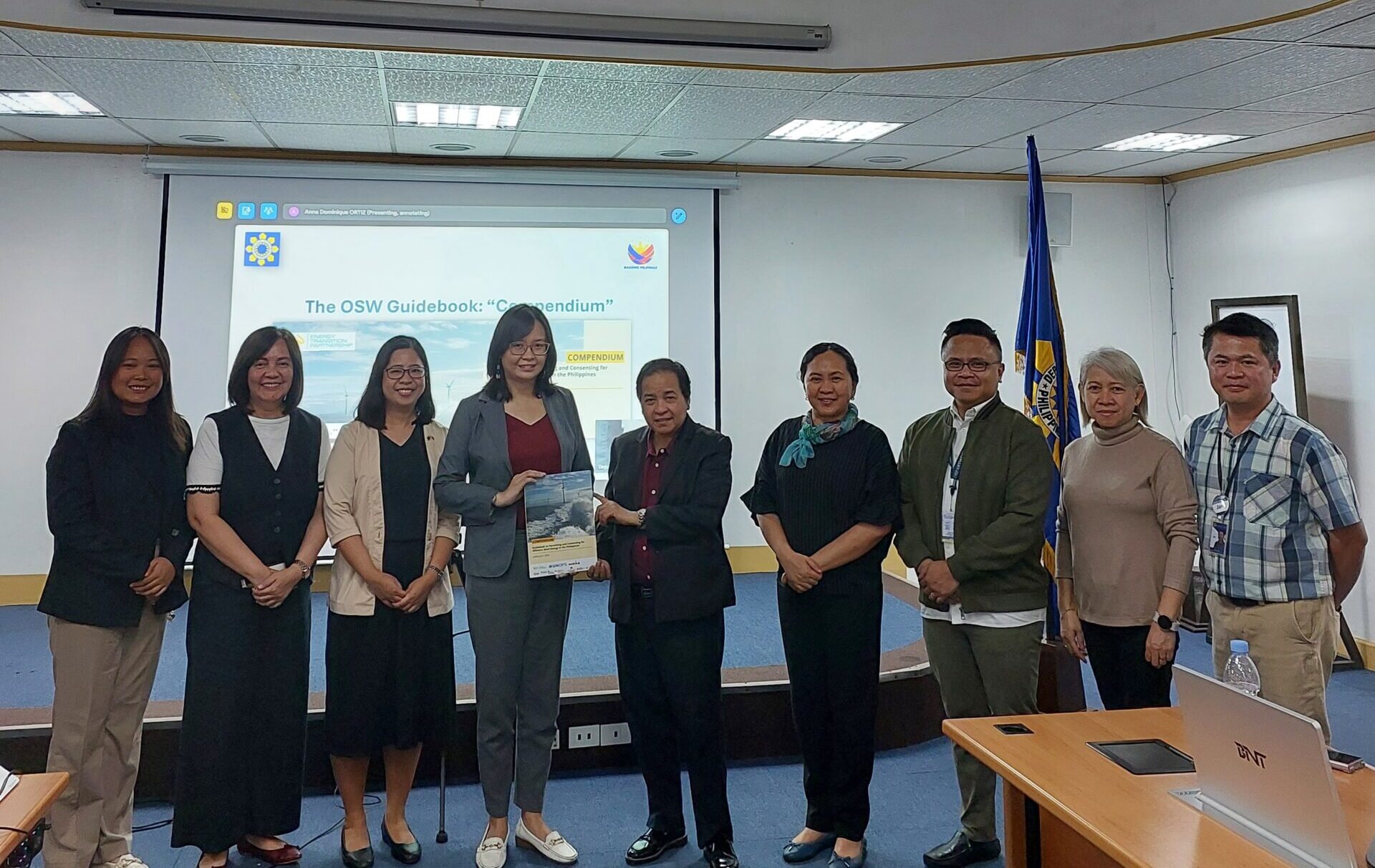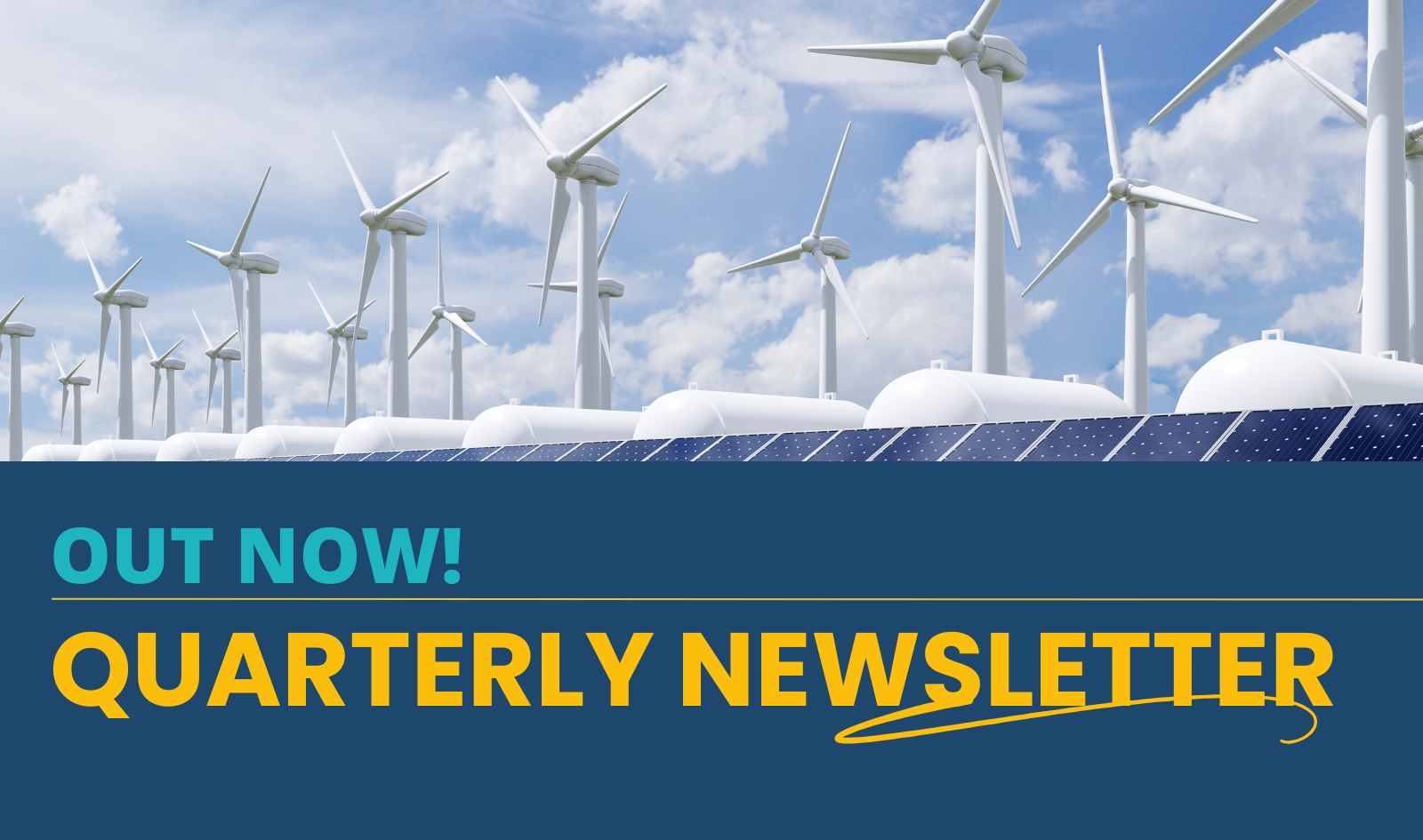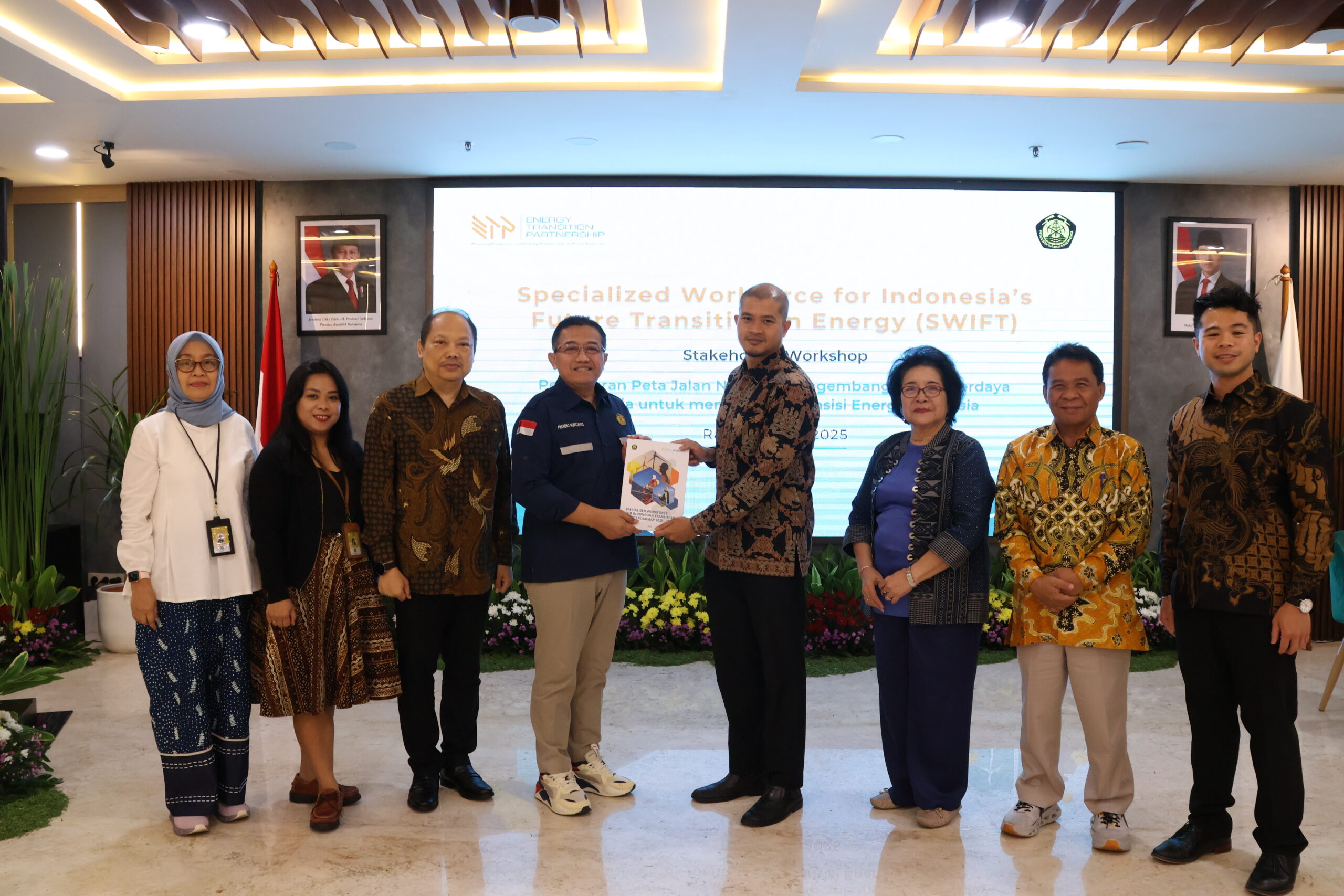On July 10, 2025, the Southeast Asia Energy Transition Partnership (ETP) officially presented the Offshore Wind Permitting and Consenting Guidebook to the Department of Energy (DOE), marking the conclusion of ETP’s technical assistance project on streamlining offshore wind development in the Philippines.
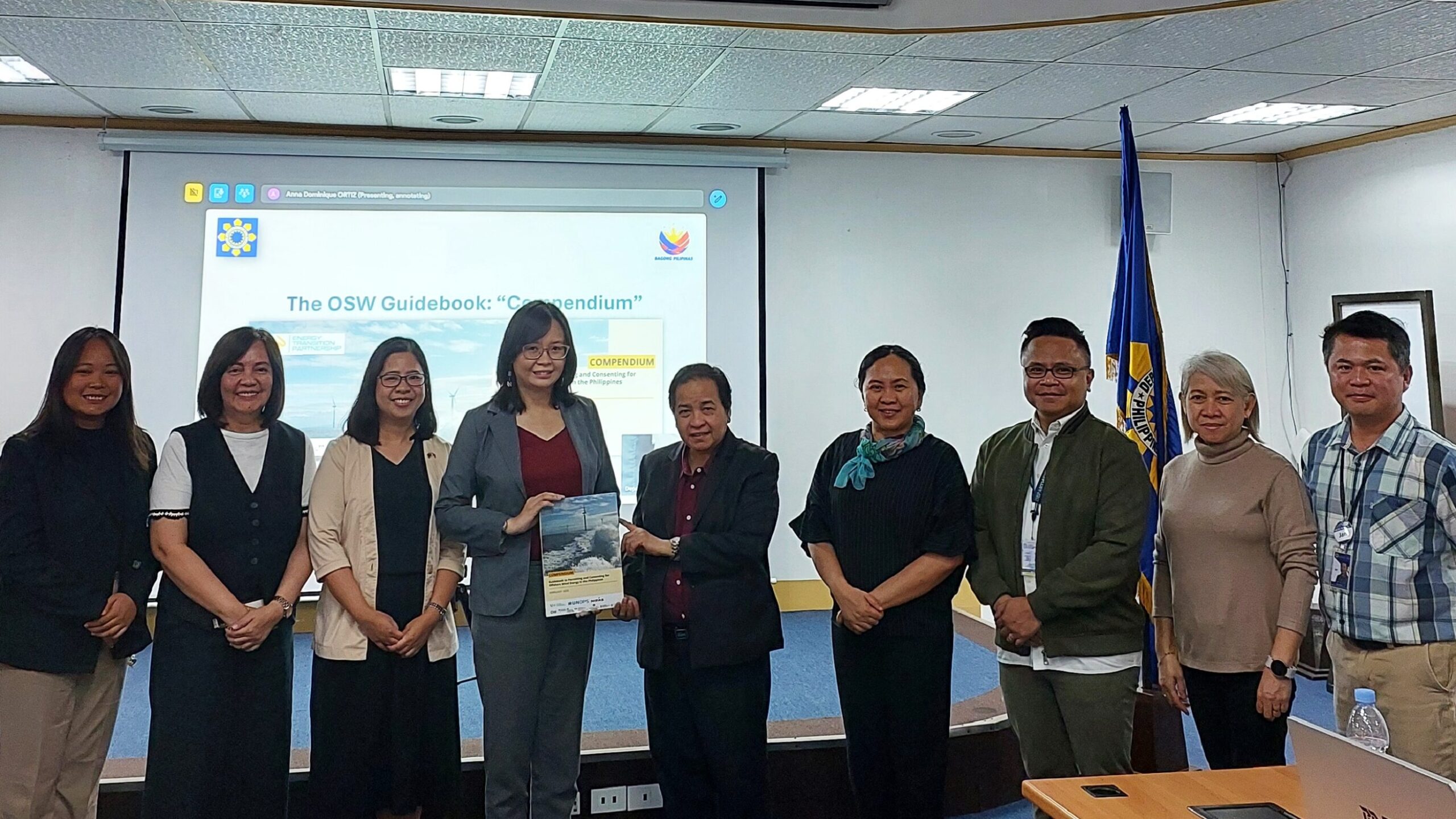
Developed in partnership with NIRAS Asia Manila and under the guidance of DOE’s Renewable Energy Management Bureau (REMB) Wind Energy Management Division, the guidebook offers a comprehensive and user-friendly permitting framework, aligned with Good International Industry Practices (GIIP). It aims to support government agencies and developers in accelerating the deployment of offshore wind energy and attract increased investments within the country’s OSW sector.
Representing the DOE were Assistant Secretary Mylene Capongcol, REMB Director Marissa Cerezo and Assistant Director Ruby de Guzman and ETP Senior Program Manager Adritha Subbiah, who attended the handover ceremony. “This guidebook provides a clear, structured, and practical roadmap for the development of offshore wind projects,” said Ms. Subbiah ETP. “It is intended to support government agencies and project developers alike by outlining the key legal, procedural, and institutional steps across the OSW project lifecycle.”
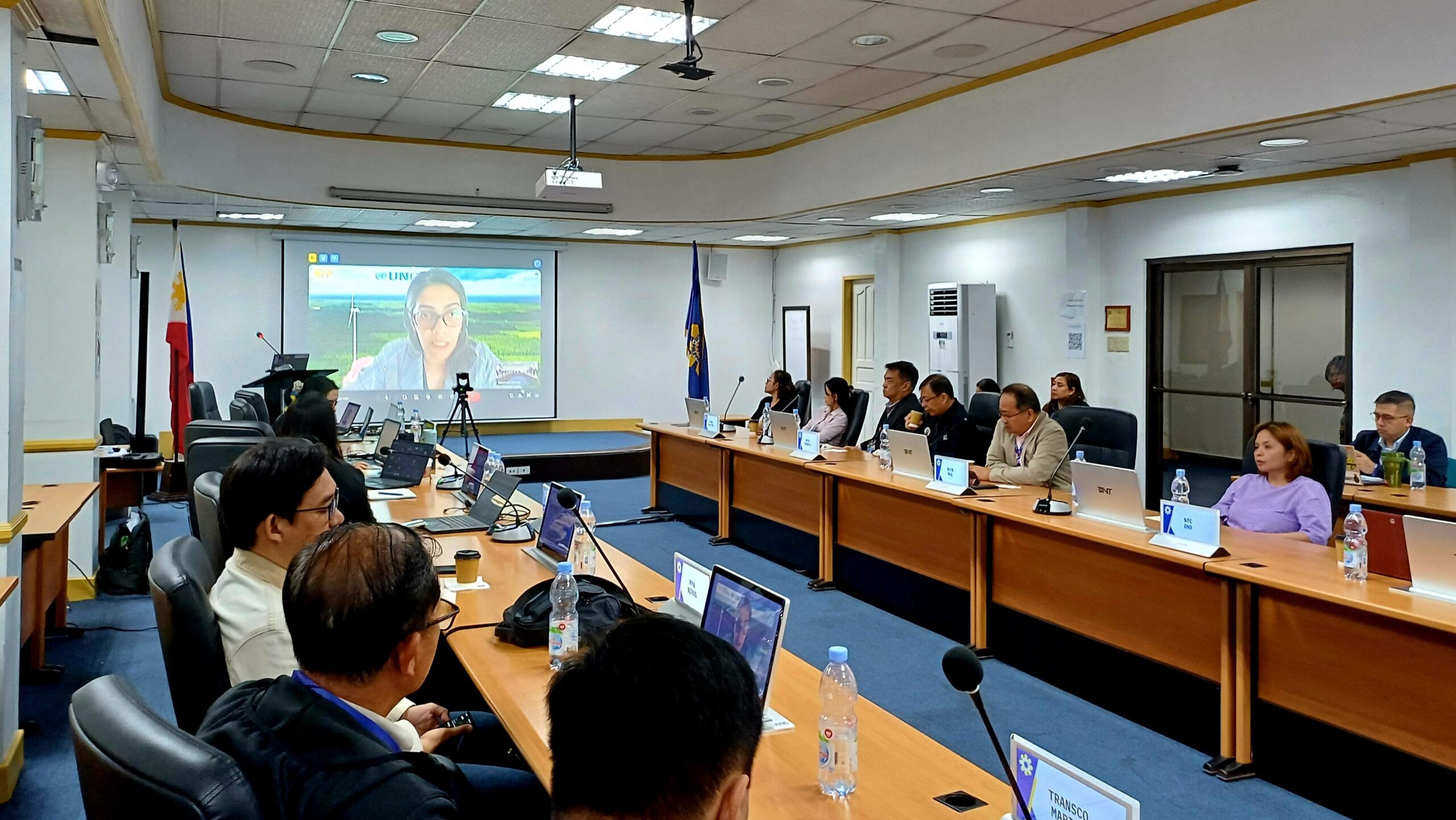
The guidebook presents a structured permitting and consenting framework developed through rigorous, multi-stage consultations with nearly 30 Philippine agencies and bureaus involved in the OSW project approval process. It could also serve as a foundation for future refinements to streamline permitting and could offer a model for other renewable energy technologies.
In her message, Asec. Capongcol emphasized the importance of the guidebook in advancing the country’s renewable energy agenda: “This guidebook is not just a document—it is a blueprint for accelerating offshore wind development in the country. With this, we take a significant step toward streamlined, and globally-aligned permitting systems.”
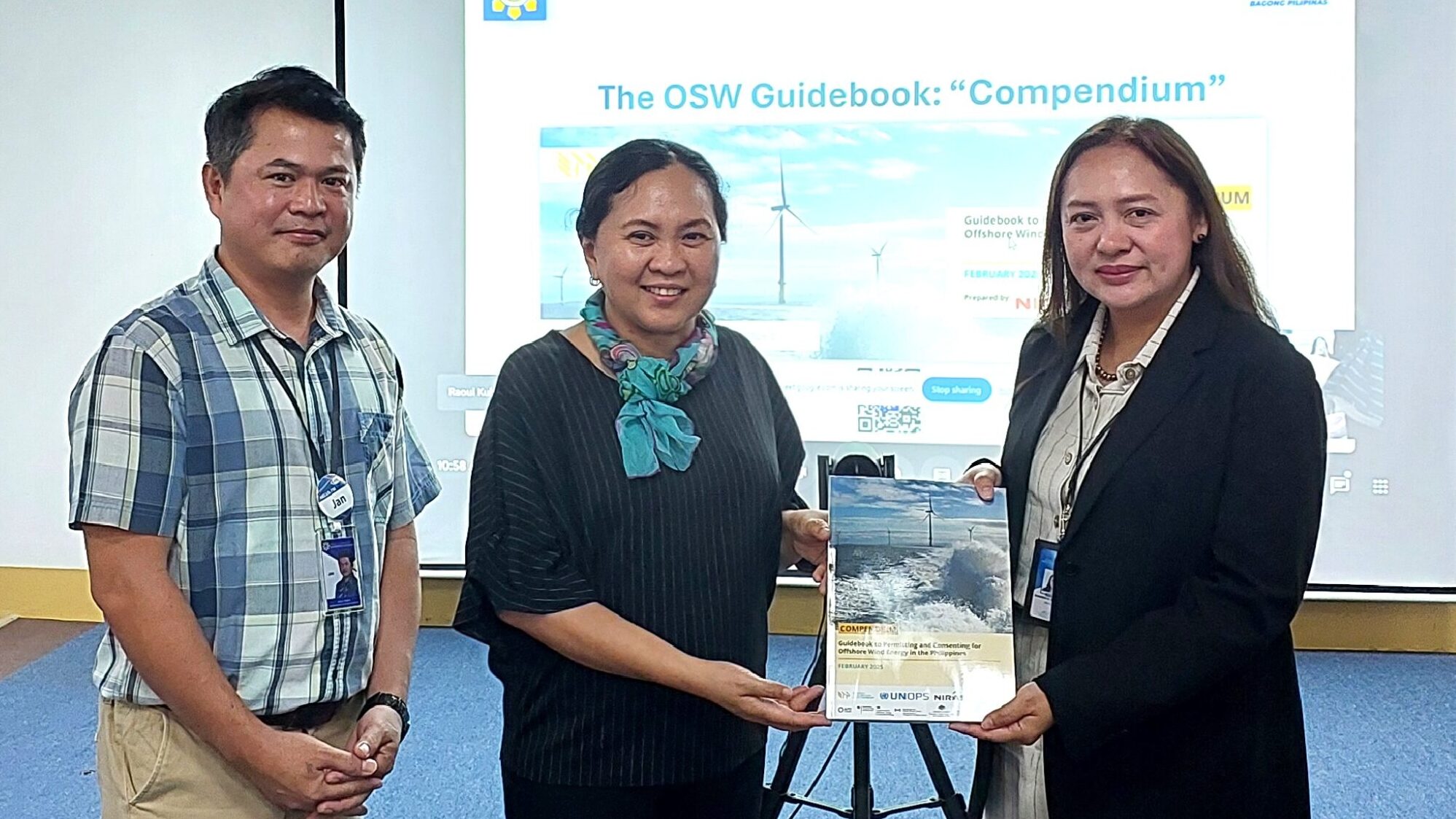
The project, initiated in 2023, reviewed and mapped national-level permitting processes for offshore wind that can be integrated into the DOE’s Energy Virtual One-Stop Shop (EVOSS) system. leaving behind a legacy of collaboration, capacity building, and strategic reform for a cleaner energy future.

